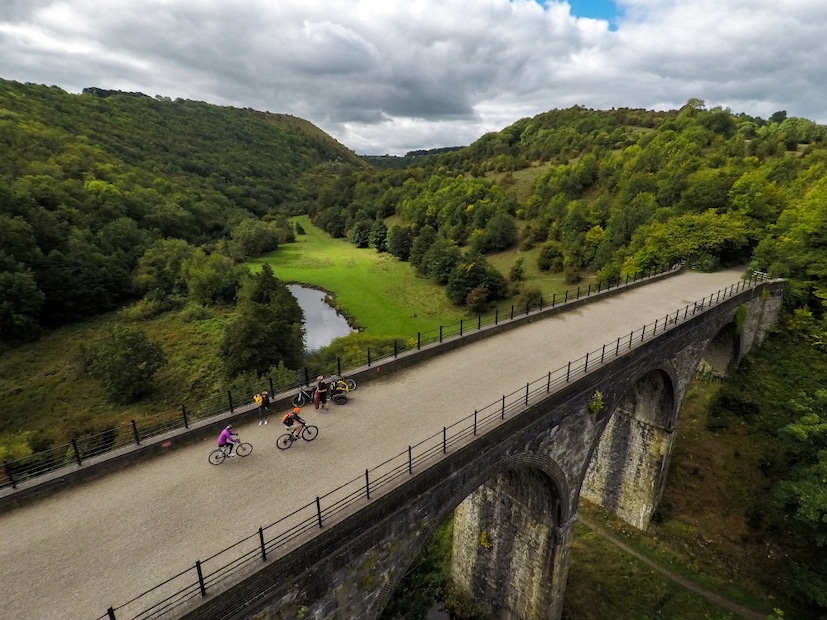The Dementia Help team is cycling 330 miles across the country in June to raise vital funds for YoungDementia UK.
Dementia Help’s founder, Christina Neal, her co-director Peter Berry and website editor Dave Collison will be cycling 330 miles from Aberystwyth to Aldeburgh for this worthwhile charity. You can sponsor the team at https://uk.virginmoneygiving.com/Team/TeamDementiaHelp. Supported by Christies Care in Saxmundham, cycling retailer Sax Velo (also based in Saxmundham), nutrition brand Munchy Seeds, award-winning mortgage brokers Monica Bradley Associates, the team are busy training for what will be a hilly and punishing ride.
Peter, aged 53, was diagnosed with early Alzheimer’s three years ago and is determined to show that a person with dementia can still achieve goals. He’s a keen cyclist and often goes out for bike rides to help him ‘leave dementia at home for a while’. The Cycle Challenge was his idea. The trio will be doing the challenge over six days, starting on Monday 25th June and finishing on Saturday 30th June, covering an average of 55 miles per day. (You can follow their progress on Dementia Help’s Facebook page.) Young onset dementia affects over 42,000 people in the UK (people under the age of 65) who are generally of working age and still have financial responsibilities and families to support. YoungDementia UK provides vital support to those living with young onset dementia.
After his diagnosis, Peter had to give up his business after the condition made it impossible for him to run the well-established family company he took over from his father many years ago. His positive outlook inspires many and he is regularly invited to speak at conferences.
Christina is a writer and editor and wrote the book ‘Dementia Care: A Guide’ (under her previous name of Christina Macdonald) after caring for her late mother, Hazel, who had vascular dementia, for almost a decade. She describes caring for her mum as the most stressful period of her life, so she knows first-hand the challenges that carers go through. She speaks about her caring experiences at The Alzheimer’s Show every year.
Apart from being Dementia Help’s website editor, Dave is a professional singer who performed at last year’s Alzheimer’s Show, where he was inspired to see many people who had dementia singing along to the music, clearly recognising the songs and the lyrics.
We asked the experts at YoungDementia UK to tell us more about how the condition affects younger people – here’s what they had to say…
Why do people tend to think that dementia doesn’t affect younger people?
There is a perception that dementia is part of aging and only affects people who are elderly. People are much less aware that dementia can affect younger people too. It is a relatively uncommon condition and historically much less attention has been given to people affected at a young age. We are trying to change people’s understanding of dementia so they are aware that it can, and does, affect people of all ages.
How many young people in the UK (under the age of 65) currently have dementia?
In 2014, it was estimated that there were 42,325 people in the UK who were living with a diagnosis of young onset dementia, which represented about 5% of the total number of people living with the condition. However, young onset dementia can be difficult to diagnose and many people are either misdiagnosed, or are living undiagnosed with the condition. We therefore believe the actual number of people living with young onset is considerably higher.
Why is it so important to raise awareness of the fact that dementia can affect the young?
We need GPs and medical practitioners to be more aware of the signs and symptoms so that younger people can get an accurate and timely diagnosis. Employers need to be aware so support can be set in place for people with a diagnosis who are still working, and for their family members so they can remain in work for as long as is possible. Schools need to understand the impact having a parent with dementia can have on children. There are very few dementia services specifically for younger people. We need local and national government to be aware so that age appropriate support services are established, so younger people aren’t forced to access services designed for people decades older than they are. Young onset dementia is an area that needs much more research and considerably more funding. Raising awareness will lead to greater understanding of the very different impacts dementia has when you are diagnosed in the prime of life. With greater public awareness will come less stigma and a greater understanding that life doesn’t stop when you receive a dementia diagnosis.
For more information on YoungDementia UK, visit https://www.youngdementiauk.org
